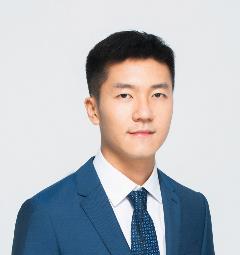 This interview was conducted in 2021.
This interview was conducted in 2021.
Q1: Describe your current position/role.
I am currently a BMS Systems Engineer at Arrival. I implement system engineering processes to improve BMS product/software quality, by interpreting and translating feature requirements into systems requirements, designing BMS functions and decomposing systems requirements into components requirements.
Q2: What are one or two of your proudest professional accomplishments?
One is that I have built a Simulink supercapacitor model from scratch, in supporting of the early phase of a new system development, in which I took the full responsibility to conduct the project, from literature research, the simulation model building, test planning, parameter characterization, to final model validation.
The other is that I have supported a local software team of a multinational company in establishing their system/software engineering process and improve software stability/quality.
Q3: What is the biggest challenge you face as a Systems Engineer?
The need to learn the various aspects of a system quickly, both from a high-level point of view and down to implementation details and constraints, which I think is also the fascinating part of being a Systems Engineer.
Q4: What advice do you have for individuals starting their career as a Systems Engineer?
Do not limit your horizon to a single system of a product, try to learn and understand other systems as well, which will give you a holistic view and help you make better decisions; keep track of the general technology/industry trend, broaden your knowledge and hone your skills in those areas if possible, this will be helpful for your career in the long run.
Q5: How do you continue to learn about SE? What professional development activities do you do?
Through reading books about SE (INCOSE SE Handbook etc.), online training course (such as Coursera) on the job training, as well as training provided by the employer.
Keep track of the Continual Professional Development activities, apply for the Chartered Engineer and SEP certification.
Q6: What are the next career goals you want to achieve?
Obtain CSEP and be able to lead a team or take a leadership role in a SE team.
Q7: What are some of your hobbies/interests outside of work?
Playing badminton and hiking in national parks.
Q8: Why did you decide to get the SEP certification?
Although I have been working as a Systems Engineer for several years and learning various aspects of the SE, I found myself not having had a well-structured view on the subject. Since INCOSE has provided this program to become professionally certified, I think it is a great opportunity to fill the gap and develop a well-rounded holistic view, and at the same time, have my SE knowledge recognized.
Q9: How does the SEP certification impact your professional career?
I think it is the learning process that will have a more meaningful impact on my career rather than the certification itself. In that respect, it might have helped me to get the job at Arrival. Otherwise, I was congratulated by the team for the accreditation of ASEP, which enhanced my reputation in SE capability.
Q10: What has surprised you in the past five years related to systems engineering?
The increasing trend of companies looking to adopt MBSE, in addition to those who would like to follow good SE processes.
Q11: What job titles have you had other than “Systems Engineer?”
Modelling and Simulation Engineer.
Q12: Are there any other final comments you would like to make?
Hope you enjoy being a Systems Engineer, enjoy thinking in Systems and enjoy the beauty of Systems!